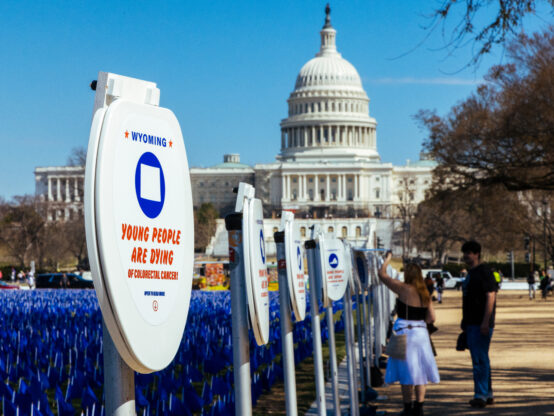CDC Colorectal Cancer Control Program
Our Priority:
Increase funding for colorectal cancer screening in underserved communities through the CDC’s Colorectal Cancer Control Program (CRCCP).
Why This is Important:
- There are approximately 44 million people in the U.S. that are eligible for colorectal cancer screening and as many as 1 in 3 are not up to date on screening.
- Despite the program’s success, it has not seen steady increases, making it difficult to keep up with inflation and expand to additional communities in need.
- Preventing colorectal cancer saves lives and money.
What We Are Doing:
Asking for $51 million for the Centers for Disease Control and Prevention (CDC) Colorectal Cancer Control Program (CRCCP) in the FY25 Labor, Health and Human Services appropriations bills.
Take Action:
Background:
The CRCCP seeks to increase screening among people ages 45 to 75, particularly in underserved communities. The program partners with state health departments, universities, and tribal organizations to implement evidence-based programs that have been proven effective for increasing colorectal cancer screening including: implementing a system to remind both medical professionals and patients that it is time for screening; making it easier for patients to get screened by providing transportation and child care, extending clinic hours, simplifying paperwork, and offering patient navigators to help patients through the screening process; and offering multiple screening options approved by the US Preventive Services Task Force (USPSTF). The CRCCP also uses data to determine whether the program increases screening, and if so, by how much, where, and for which groups.
“Funding from CRCCP has helped Clínica Tepeyac focus and invest in continuous quality improvement initiatives to increase our patients’ access to cancer screenings. Due to various barriers to care faced by our patient population, our colorectal cancer screening rates have been lower than national benchmarks. We were able to meet our improvement goal and have increased our goal for 2020. With additional dollars, we could send automatic reminders to patients when their colorectal cancer screening is due, which we believe would further improve our screening rates as well as increase our number of preventive care visits.”
GABRIELA WALTERS, Quality Improvement & Compliance Manager, Clínica Tepeyac
